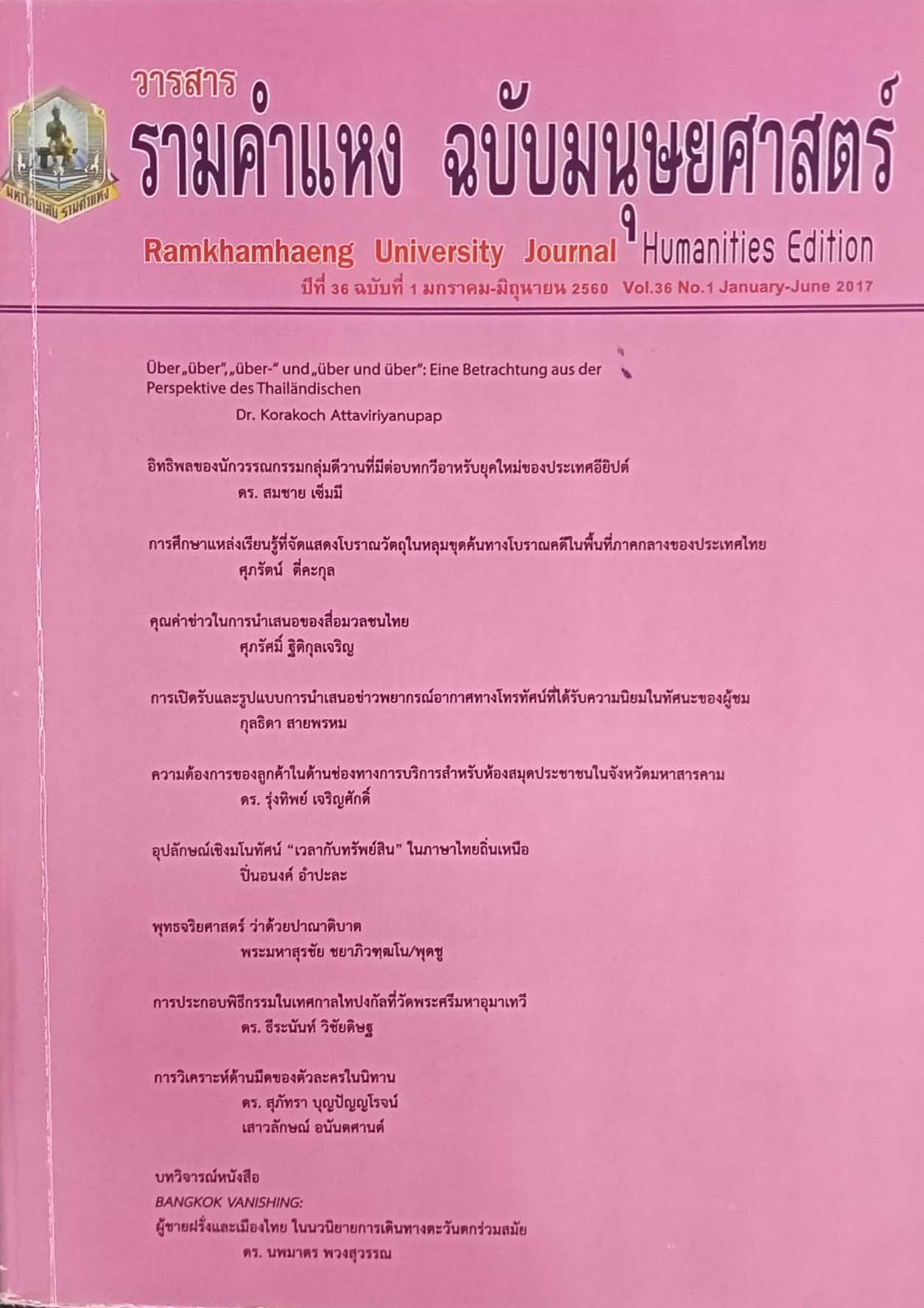พุทธจริยศาสตร์ ว่าด้วยปาณาติบาต Buddhist Ethics on Killing
Main Article Content
บทคัดย่อ
บทคัดย่อ
บทความนี้ประกอบด้วยเนื้อหาที่เกี่ยวข้องกับการศึกษา 3 ประการ คือ 1) เพื่อศึกษาแนวคิดด้านจริยศาสตร์ในทางพุทธปรัชญาเถรวาท 2) เพื่อศึกษากรณีตัวอย่างปัญหาและวิธีการวินิจฉัยด้านจริยศาสตร์ในทางพุทธปรัชญาเถรวาท 3) เพื่อการนำไปประยุกต์ใช้เป็นแนวทางแก้ปัญหาสังคมปัจจุบัน การศึกษานี้เป็นลักษณะการวิจัยเชิงคุณภาพ ตามกระบวนการศึกษาด้านมนุษยศาสตร์ โดยใช้วิธีวิภาษวิธีและวิธีหาเหตุผลด้วยวิจารณญาณ ภายใต้การวิเคราะห์ วิจักษ์ และวิธาน
ปัญหาทางจริยธรรมเป็นประเด็นทางการศึกษาอย่างหนึ่งของจริยศาสตร์ ปัจจุบันการล่วงละเมิดจริยธรรมมีมาก ในบทความนี้ได้นำเสนอปัญหาจริยศาสตร์เชิงพุทธในระดับเบื้องต้นคือเบญจศีล เฉพาะข้อว่าด้วยปาณาติบาต ประเด็นทางจริยธรรมในศีลข้อนี้ก็คือเรื่องของอัตวินิบาต การุณยฆาต และนายเพชฌฆาตกับนักโทษประหาร
จากการศึกษาพบว่า การวินิจฉัยปัญหาทางจริยธรรมในทางพุทธจริยศาสตร์ จะมีเกณฑ์วินิจฉัย ที่ชัดเจนนั่นคือหลักพระธรรมวินัย ในที่นี้คือหลักวินิจฉัยศีลข้อที่ 1 หากปัญหาใดเข้าข่ายหลักที่ว่านี้ ถือว่าผิดศีล อย่างไรก็ตาม การวินิจฉัยปัญหาทางพุทธจริยศาสตร์ไม่ได้ยึดตัวบทของคัมภีร์อย่างเดียว แต่ขึ้นอยู่กับบริบททางสังคมด้วย เช่น ประโยชน์หรือโทษที่สังคมจะพึงได้รับจากการกระทำนั้น ดังนั้น การแก้ปัญหาทางพุทธจริยศาสตร์จึงอยู่บนทางสายกลางคือความพอดี ไม่สุดโต่งเอนเอียง
ไปด้านใดด้านหนึ่ง และเป็นการประยุกต์เข้าหาสังคม โดยมีหลักการวินิจฉัยที่แน่นอนว่าถูกหรือผิด ในความถูกหรือผิดก็มีข้อพิจารณาคุณหรือโทษมากน้อยต่างกัน ขึ้นอยู่กับองค์ประกอบที่นำมาวิเคราะห์ร่วม
คำสำคัญ: พุทธจริยศาสตร์; ปาณาติบาต; อัตวินิบาต; การุณยฆาต; โทษประหารชีวิต
Abstract
This article consists of 3 studies including (1) to study the Theravada Buddhist ethics; (2) to study in some cases of problems and to judge such problems according to Theravada Buddhist ethics; and (3) to apply using in today’s society. It is the qualitative research in the process of humanism which is used by the dialectic and discursive method under the analytic, appreciative, and applicative approach.
Moral problems are one of case studies of ethics. Nowadays a serious mistake of morality will be increased. This article presents the problems of the basic Buddhist ethics, i.e. 5 precepts which is selected to Killing topic. The moral problems in this kind of precepts are a suicide, euthanasia, and executioner and capital punishment.
From this study, it is found that the judgments of moral problems in Buddhist ethics have the certain doctrines, i.e. the judgments to abstain from Killing. If some cases make a mistake in these judgments, that are wrong percept. However, the judgments of Buddhist ethics not only insist on text, but also apply to social context such as an advantage or disadvantage of having from such a situation. Hence, the solution of the Buddhist ethical problems is based on a middle path, i.e. moderation, not an extreme left-wing/right-wing view, and adaptable to society. It is a judgment what is right or wrong. In such a judgment it is carefully considered by a valued or unvalued reason which is based on a conclusive proof to criticize.
Keywords: Buddhist Ethics; Killing in Buddhism; Suicide, Euthanasia; Capital Punishment
Article Details

อนุญาตภายใต้เงื่อนไข Creative Commons Attribution-NonCommercial-NoDerivatives 4.0 International License.
ประกาศลิขสิทธิ์จะปรากฏในเกี่ยวกับวารสาร ควรอธิบายสำหรับผู้อ่านและผู้เขียนว่าเจ้าของลิขสิทธิ์เป็นผู้เขียนวารสารหรือบุคคลที่สาม ควรรวมถึงข้อตกลงการอนุญาตเพิ่มเติม (เช่นใบอนุญาตครีเอทีฟคอมมอนส์) ที่ให้สิทธิ์แก่ผู้อ่าน (ดูตัวอย่าง) และควรให้วิธีการรักษาความปลอดภัยหากจำเป็นสำหรับการใช้เนื้อหาของวารสาร


